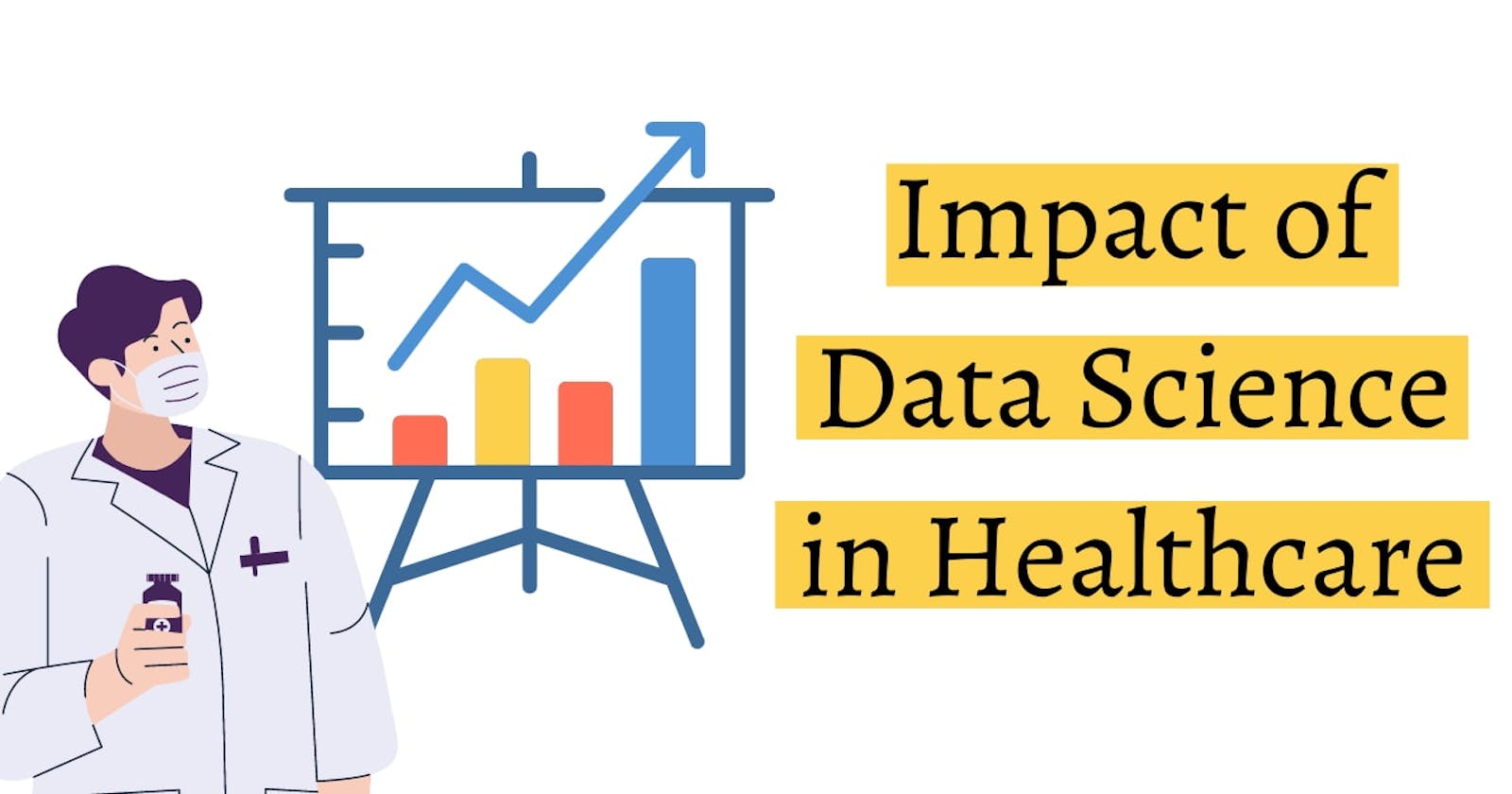Introduction :
The healthcare industry has seen a significant transformation in recent years due to the increasing use of data science. Data science in healthcare refers to the application of statistical, mathematical, and machine learning algorithms to analyze and interpret large amounts of healthcare data. This blog post will explore the concept of data science in the healthcare industry, its impact on the industry, its application, and how healthcare organizations can leverage data science to improve patient outcomes and reduce costs.
Importance of Data Science in the Healthcare Industry :
The healthcare industry generates and processes vast amounts of data every day, including patient data, clinical data, operational data, and financial data. Data science offers the ability to analyze this data and extract insights that can be used to improve patient care, streamline operations, and reduce costs. Here are some of the key areas where data science is being used in the healthcare industry :
Precision Medicine: Precision medicine is an approach to healthcare that tailors medical treatment to individual patients based on their unique genetic, environmental, and lifestyle factors. Data science plays a crucial role in precision medicine by enabling the analysis of large amounts of genetic and clinical data to identify personalized treatment options for patients.
Disease Diagnosis and Management: Data science can help healthcare organizations to diagnose and manage diseases more effectively. Machine learning algorithms can analyze patient data, including medical history, symptoms, and test results, to identify patterns and make predictions about disease progression and treatment outcomes.
Operational Efficiency: Data science can help healthcare organizations to improve operational efficiency by analyzing data related to staffing, resource allocation, and patient flow. Machine learning algorithms can help healthcare organizations optimize staffing levels, reduce wait times, and improve patient satisfaction.
Healthcare Fraud Detection: Data science can help healthcare organizations detect and prevent fraud by analyzing large amounts of financial and operational data. Machine learning algorithms can identify patterns and anomalies in the data, which can alert healthcare organizations to potentially fraudulent activities.
Drug Discovery and Development: Data science can help pharmaceutical companies to develop new drugs more efficiently. Machine learning algorithms can analyze large amounts of data from clinical trials and drug development studies to identify potential drug candidates and predict their effectiveness.
Applications of Data Science in Healthcare :
Predictive Analytics: Data science can be used to predict future health outcomes, such as the likelihood of readmission or the progression of a disease. By identifying patients at high risk, healthcare providers can intervene early and prevent complications.
Clinical Decision Support: Data science can provide clinical decision support tools that help healthcare providers make better decisions about patient care. For example, machine learning algorithms can assist radiologists in diagnosing cancer from medical images.
Personalized Medicine: Data science can be used to develop personalized treatment plans based on a patient's unique genetic, clinical, and lifestyle characteristics. By tailoring treatments to individual patients, healthcare providers can improve outcomes and reduce costs.
Population Health Management: Data science can be used to analyze population health trends and identify areas for intervention. By monitoring disease outbreaks and identifying patterns in health data, healthcare providers can improve public health and prevent epidemics.
Drug Discovery: Data science can be used to accelerate the drug discovery process by identifying potential drug targets, predicting drug efficacy, and optimizing dosages. By leveraging machine learning algorithms, researchers can reduce the time and cost of drug development.
Challenges of Data Science in the Healthcare Industry :
Data science has the potential to revolutionize healthcare by improving patient outcomes, reducing costs, and advancing research. However, the healthcare industry faces several challenges in fully leveraging the power of data science. Some of these challenges include :
Data Quality: Healthcare data is often fragmented, incomplete, and inaccurate, making it challenging to extract insights from it. Data cleaning and standardization are crucial steps in the data science process, but they require significant time and resources.
Data Privacy: Healthcare data is sensitive and subject to regulatory constraints such as the Health Insurance Portability and Accountability Act (HIPAA). Data scientists need to adhere to strict privacy guidelines to ensure that patient data is not compromised.
Lack of Interoperability: Healthcare data is often stored in different systems and formats, making it challenging to integrate and analyze. Interoperability standards are needed to ensure that data can be shared across different systems and organizations.
Complex Data Analysis: Healthcare data is complex, with multiple variables and interactions, making it challenging to analyze. Data scientists need to have a deep understanding of healthcare and clinical workflows to extract meaningful insights.
Regulatory Challenges: Healthcare data is subject to a variety of regulatory frameworks, including HIPAA, the General Data Protection Regulation (GDPR), and the FDA. Data scientists need to navigate these regulations to ensure that their work is compliant.
Limited Data Availability: Healthcare data is often limited, with small sample sizes, making it challenging to draw robust conclusions. Data scientists need to develop innovative methods to overcome these limitations, such as using synthetic data or combining datasets.
Resistance to Change: The healthcare industry has traditionally been slow to adopt new technologies and practices. Data scientists need to work with clinicians, administrators, and other stakeholders to demonstrate the value of data science and drive adoption.
Conclusion :
Data science has the potential to transform the healthcare industry by improving patient outcomes, reducing costs, and advancing research. However, the industry faces several challenges in fully leveraging the power of data science, including data quality, privacy, interoperability, complex analysis, and regulatory constraints. Addressing these challenges is critical to realizing the potential of data science in healthcare.
